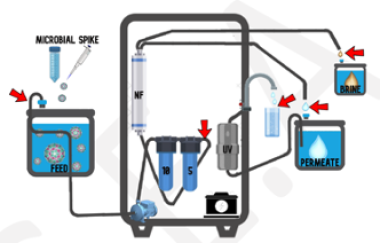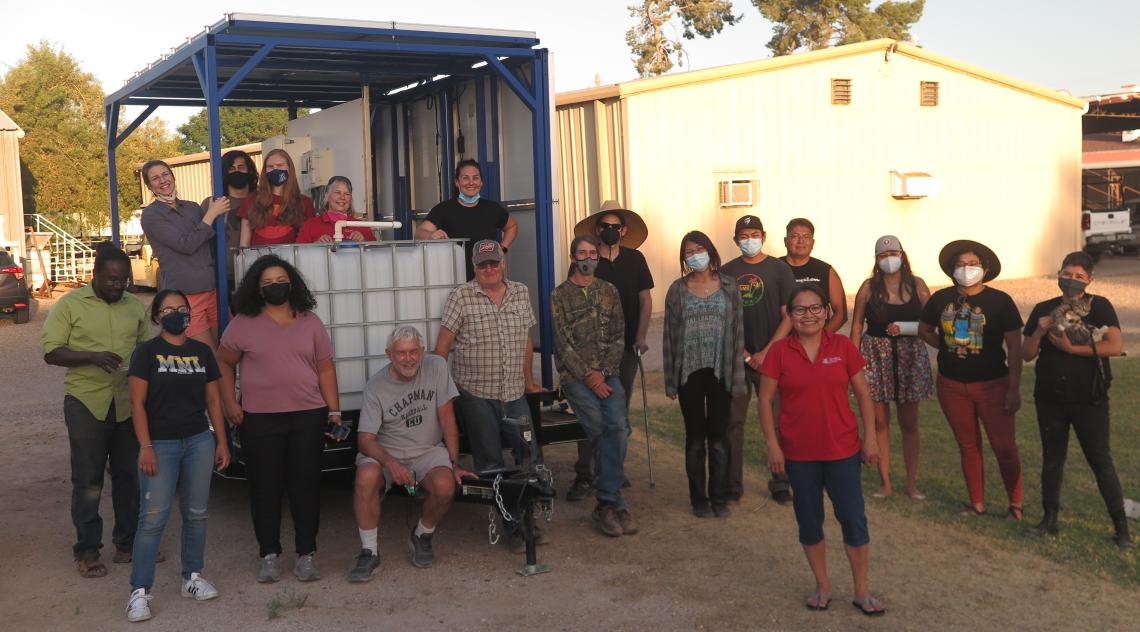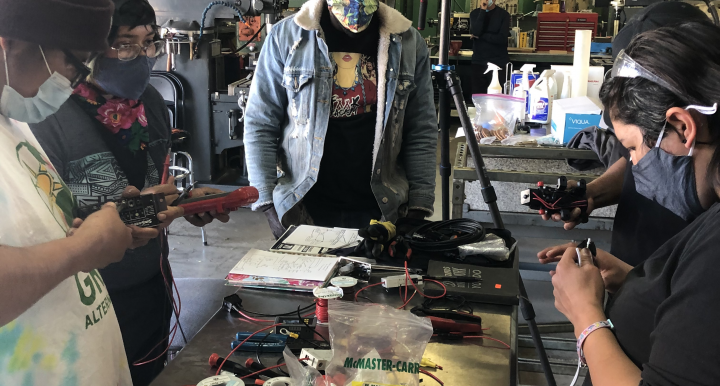Thirty percent of Navajo homes lack indoor plumbing and access to central infrastructure for water and power. Those residents must haul water, sometimes from distant locations, from unregulated sources. The unit cost of obtaining water in these situations, including time spent, is many times that of municipal water in nearby cities.
In January 2021, the Arizona Institutes for Resilience (AIR) offered short-term grants to advance interdisciplinary research at the University of Arizona “to develop practical, applied solutions that further resilience in our natural and human communities.” To promote sustainable solutions for marginalized communities in Arizona, the Indigenous Food, Energy & Water Security and Sovereignty (Indige-FEWSS) program partnered with Sixth-World Solutions (SWS), a Navajo-owned, for-profit company that was already engaged in the installation of water collection systems in remote areas of the Navajo Nation, to further develop and deliver water access solutions. SWS is a full partner in the AIR project, which was funded at $100,000 for a sixth-month period through August 2021.
TRIF_21-IndigeFEWSS-SWS-figure.png

To date, Indige-FEWSS grant recipients have organized the AIR effort with SWS, trained six SWS technicians in the art and science of solar-nanofiltration (SNF) system design and construction, participated in the construction of four household-scale systems, and organized a future program centered on community participation to increase the chances of resident acceptance of such systems. SWS will participate in the second of two week-long training sessions at the University of Arizona during the period of June 10 to 13 to be fully capable of replicating designs as well as operating and maintaining built systems that are going into the field.
The SNF system is capable of efficient removal of dissolved solids—up to 95 percent removal of magnesium sulfate—and greater than 6-log inactivation of MS-2 virus in a single pass through the pre-membrane filters, nanofiltration (NF) canister and ultraviolet (UV) disinfection unit, as shown in Figure 1. The system is fit to remove dissolved toxicants including uranium and arsenic species and to inactivate microorganisms (bacteria and virus), including those that might regrow in membrane-treated, stored water. The systems built to date can produce at least one kWh of excess energy each day, beyond the demands of SNF, because of overdesign of the solar panels and battery storage components. For demonstration, the units placed in the field provide about six hours of indoor lighting per day with the excess energy via three, seven-Watt LED lamps.
Planned work for the final months of the AIR grant will include system installation in four off-grid Navajo homes, instruction in system operation and maintenance, and community engagement efforts to promote proliferation of home-scale units throughout the communities served. The partnership between the Indige-FEWSS grant recipients and SWS is developing concrete solutions for water challenges on Navajo Nation.



